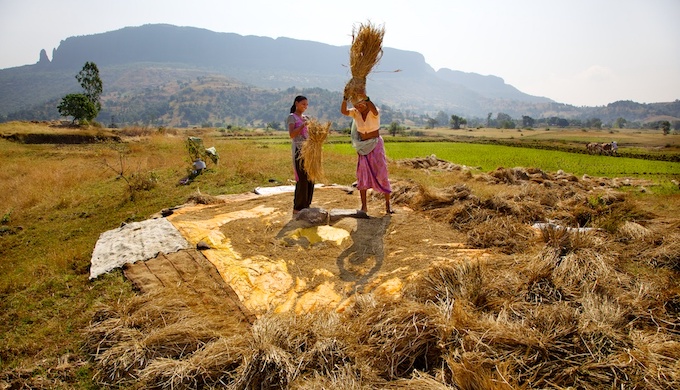Climate change is accelerating land degradation and desertification, which will hamper food production and raise cereal prices substantially unless immediate action is taken

Land degradation due to climate change would result in poor harvests (Photo by Michael Foley)
Climate change is creating additional stresses on land that heightens risks of degradation and desertification across the globe, according to a special report by the Intergovernmental Panel on Climate Change (IPCC) that is expected to be released in August.
As a result of this, crop production is expected to be impacted adversely. Cereal prices could rise by as much as 29% by 2050, which will hit consumers through higher food prices, said a draft of the report leaked to the Business Standard newspaper. Besides food security, higher carbon dioxide concentrations are also affecting food quality, which has serious implications for nutrition security, according to the draft summary for policymakers that has been sent to 197 national governments to review.
The extent and rate at which humans have been exploiting land and freshwater resources is unprecedented in history. Together with intensification of land use, the exploitation has already led to loss of biodiversity and ecosystem services, and has hastened land degradation and desertification that impacts the livelihoods of millions of people.
Climate change exacerbates land degradation processes through more intense rainfall, frequent floods and droughts, heat stress and sea level rise. The IPCC draft said it is already affecting the four pillars of food security — availability, access, utilisation and stability — through rising temperatures, changing rainfall patterns and more frequent extreme weather events.
The IPCC, the United Nations body for assessing the science related to climate change, responded to the leaked document by saying, “Drafts of the report are collective works in progress that do not necessarily represent the IPCC’s final assessment of the state of knowledge.” It also pointed to the agreed upon outline of the report that is titled Climate Change and Land, an IPCC special report on climate change, desertification, land degradation, sustainable land management, food security, and greenhouse gas fluxes in terrestrial ecosystems.
Representatives of member countries of the United Nations Framework Convention on Climate Change (UNFCCC) are scheduled to meet in Geneva on August 2-6 to discuss the draft report and finalise the summary for policymakers, which is expected to be released at a media briefing on August 8.
Urgent action
The draft report urges immediate action to combat land degradation and desertification. Delayed action would increase the risks of irreversible impacts on food security and the ecosystem on which humans depend, it said.
The IPCC special report reiterates research that has already shown that climate change will impact food and nutrition security, particularly in developing countries such as India, where the rise in temperatures is already higher than the global average. India also has a relatively high proportion of drylands, which the IPCC report says will be most severely affected.
Earlier reports have stated that rising temperatures, erratic rainfall, more frequent droughts, floods and storms will not only reduce yields of staple foods in India, but also diminish their nutritional value, putting millions at risk of hunger and malnutrition. See: Climate change imperils India’s food security
Rice yields in the southern states of the country may decline by 5% in the 2030s, 14.5% in the 2050s, and 17% in the 2080s, according to A Region at Risk: The Human Dimensions of Climate Change in Asia and the Pacific, a July 2017 report by the Asian Development Bank and the Potsdam Institute for Climate Impact Research.
“Climate change will also make food production in the region more difficult and production costs higher,” the 2017 report said. “Food shortages could increase the number of malnourished children in South Asia by 7 million, as import costs will likely increase in the sub-region to USD 15 billion per year compared to USD 2 billion by 2050.”
Agriculture contributes 18% of the gross domestic product in India but provides employment to more than 50% of the workforce, according to World Bank data. The country’s farm sector is already battling a deep crisis. If harvests shrink further due to climate change, it could lead to food insecurity among large numbers of people as India becomes the most populous nation of the world in the coming decade.

Trackbacks/Pingbacks